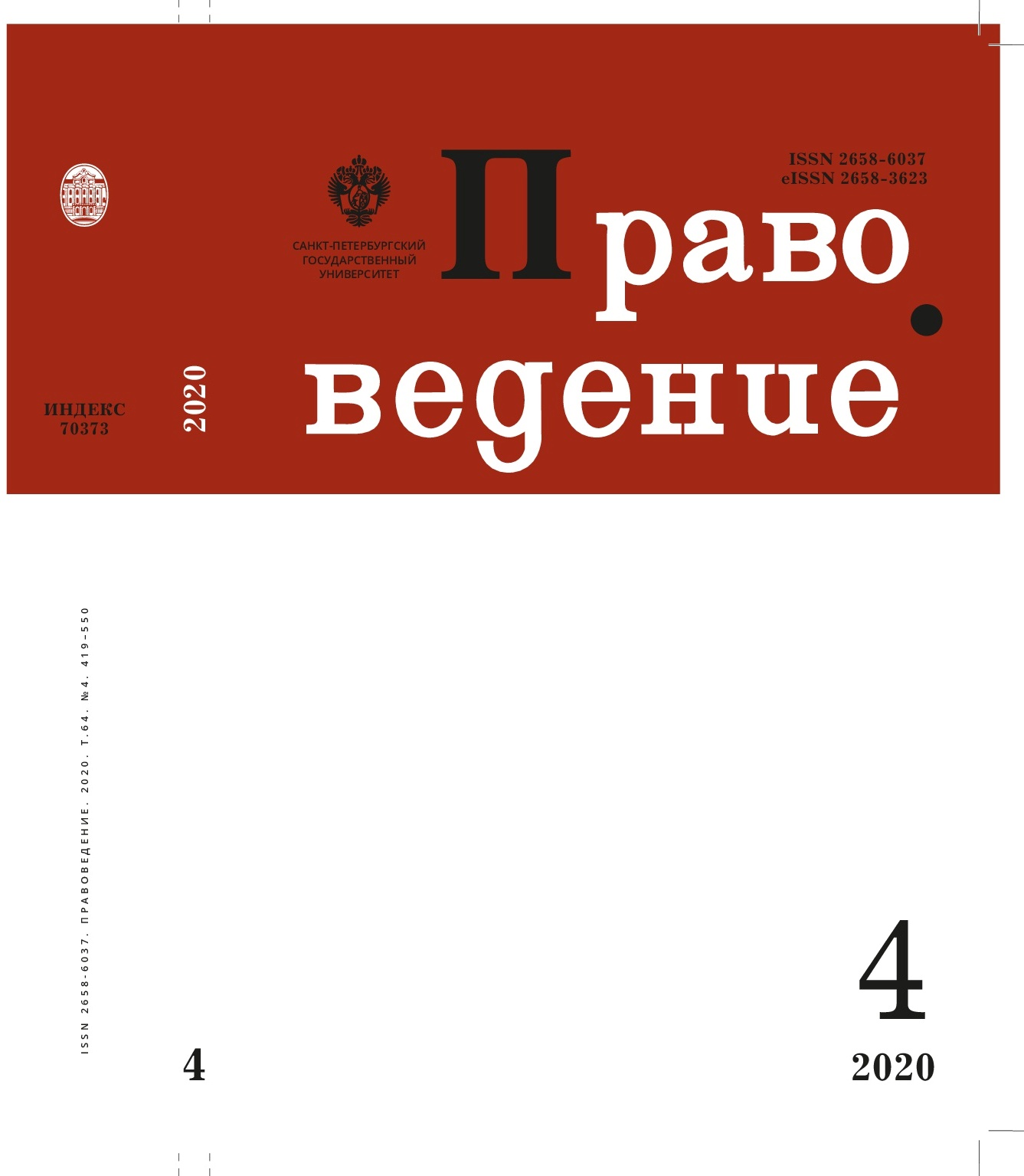The ecologization of the Chinese Civil Code
DOI:
https://doi.org/10.21638/spbu25.2020.405Abstract
Although the emergence of sustainability development in civil law has triggered substantial discussion, scarce literature is available in English on the introduction of ecological norms to the newly promulgated Chinese Civil Code, which came into force at the beginning of 2021. This article intends to fill the gap by providing an overview of the structure and significance of the principles and rules designed to render the Civil Code more adaptable to the global urgency of sustainable development. The ecological principle added to the Civil Code is designed to promote public interests rather than individual liberty. Unlike other civil law principles, the ecological principle needs to be scientifically justified, which no longer depends only on judicial discretion. Regarded as a continuation of the movement for socialization, the ecological principle contributes to the global trend of questioning anthropocentrism in law and manifests itself in a new understanding of human activity. Ecologizing the Civil Code entails a methodological agenda that incorporates more pragmatic, coherent, and policy-oriented argumentation in judicial practice. Moreover, it entails an ontological agenda, still in formation, that urges us to recognize the inevitable connections between human and nonhuman worlds on the ontological side. Within the scope of this principle, the section of the Civil Code on property law imposes the duty to act in accordance with the necessity of resource conservation and environmental protection. It is also predictable that stricter limitations will be imposed on property rights, in the name of good neighborliness. State intervention by courts due to ecological considerations will become more frequent in contractual disputes. Finally, the Code introduces the notions of punitive liability and pure environmental harm, which diverge from the classical continental tradition of understanding civil liability. Despite the theoretical novelties, the question of to what extent civil adjudication can achieve a comprehensive ecological transformation still needs to be scrutinized.
Keywords:
ecological principle, pragmatism, state intervention, private autonomy, punitiveness, environmental protection, resource conservation
Downloads
References
Downloads
Published
How to Cite
Issue
Section
License
Articles of "Pravovedenie" are open access distributed under the terms of the License Agreement with Saint Petersburg State University, which permits to the authors unrestricted distribution and self-archiving free of charge.




